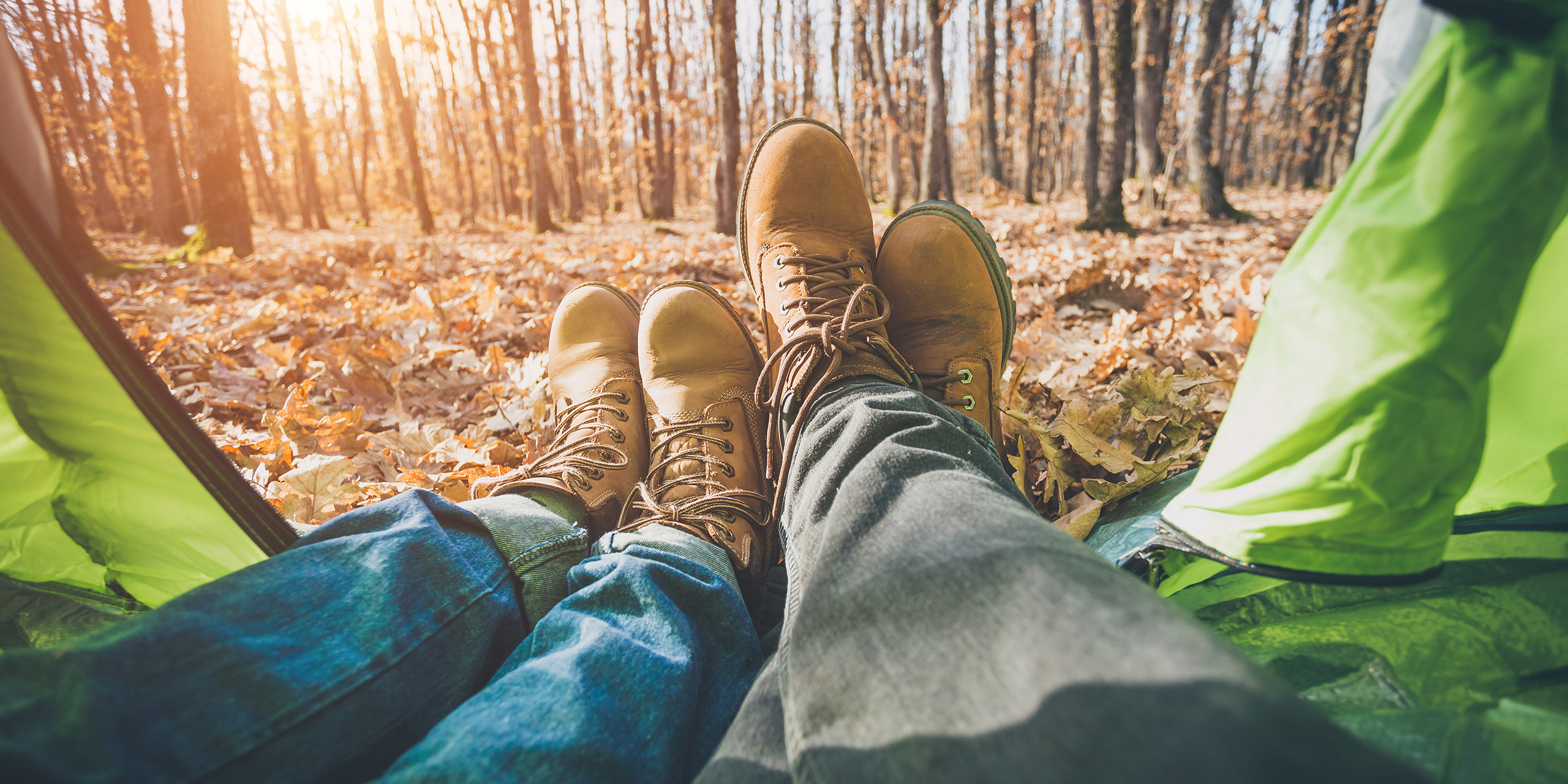Can’t Sleep? Grab your Gear and Head for the Hills

Feeling Off? A Weekend with Nature Might Reset Your Sleep Cycle
Have you been overloaded at work, burning midnight oil? Do you find yourself staring at your cell phone in the late evening hours, scrolling through just a few more Instagram or Facebook posts? Has your sleep schedule been irregular and unpredictable? If you answered yes to any of these questions, it’s time to reach into the attic and grab your tent poles and s’more skewers! While camping may not be everyone’s cup of tea, it can work wonders for de-stressing, relaxing, and even resetting our internal clocks, a vital part of getting healthy sleep. But how? It has to do with the way our bodies are programmed.
Sleeping with the Sun
Our bodies are designed specifically to release certain hormones like melatonin when our environment gets dark (I.e., when the sun goes down). And then we’re told to wake up as we are re-introduced to light in the morning (hello sunrise!). This worked fine and dandy for mankind until electricity was introduced. Once we stopped using the sun as our guiding clock for sleep and wake times, our bodies began a roller coaster of trying to figure out when is the most appropriate time to go to bed and wake up. Add the ever-present smartphones on our nightstands, the TVs in our bedrooms, and our work laptops somehow following us home at night, and we’ve got a recipe for too much light at all the wrong hours. What to do about this conundrum? Take a weekend to live like a pioneer.
Set Up Camp
It’s not just a fun idea to go camping — it’s scientifically proven to help you get to bed on a consistent schedule. A landmark 2017 study out of the University of Colorado Boulder found that those who camped out in the summer fell asleep 1.8 hours earlier than those who stayed home. During the winter solstice, melatonin production among campers began 2.6 hours earlier compared to their baseline routines (Stothard et al., 2017).
But what’s more compelling is that newer research supports and expands on this. A 2024 review published in Sleep Health found that even short exposure to natural outdoor light for just two days — with reduced exposure to artificial light — can significantly shift the body’s melatonin onset, advancing sleep timing by up to 90 minutes. Another 2023 study in Chronobiology International showed that participants who camped for a weekend retained improvements in sleep onset and duration for several days after returning home.
These findings underscore how quickly our internal clocks can recalibrate in response to natural environmental cues — no prescription required.
A Camper’s Life is (Not) For Me
If the idea of spending a weekend without the comforts of modern life sounds more agonizing than relaxing, you can take the findings of the camping studies and apply them to your own home. Kenneth Wright, the lead researcher on the original 2017 Colorado study, described how to change our day-to-day lives to achieve a circadian rhythm reset.
“Our findings highlight an opportunity for architectural design to bring more natural sunlight into the modern built environment and to work with lighting companies to incorporate tunable lighting that would be able to change across the day and night to enhance performance, health, and wellbeing.”
To apply this experiment to your own life, try dimming your lights an hour or two before bedtime, and consider implementing smart bulbs that mimic the gradual sunset and sunrise cycle. These are now more widely available in 2025 and even integrate with circadian-friendly apps like SleepScore. Also, try to get as much natural light as possible within an hour of walking. Open those blinds and let the sun stream in as you get ready in the morning — or better yet, take a 15-minute walk outdoors.
At night, apply a blue light filter to your smartphone, or wear blue light-blocking glasses. The latest generation of these glasses now block a broader spectrum of blue-green light, which is known to suppress melatonin.
If you’re inspired to get out and go camping this weekend, try and leave the smart devices at home. Enjoy the solitude and peace that the great outdoors has to offer. As the sun sets, you may start to feel sleepy much earlier than usual. Embrace it and go to bed with nature, and you’ll find yourself waking up with the sunrise as well. By the time you get back home, your rhythm may be reset, and you can try to keep it intact with our other helpful at-home tips.
How SleepScore Can Help
If a camping trip isn’t in the cards right now, SleepScore offers tools and technology to help you achieve the same sleep-reset benefits right from your own bedroom. Using non-contact sleep tracking backed by scientific validation, the SleepScore App provides personalized recommendations to help improve your sleep environment and daily habits.
With actionable insights and ongoing support, SleepScore empowers you to improve your sleep health—whether you’re under the stars or under your own roof.
Download the free SleepScore app and start your sleep improvement journey on App Store or Google Play.
Sources